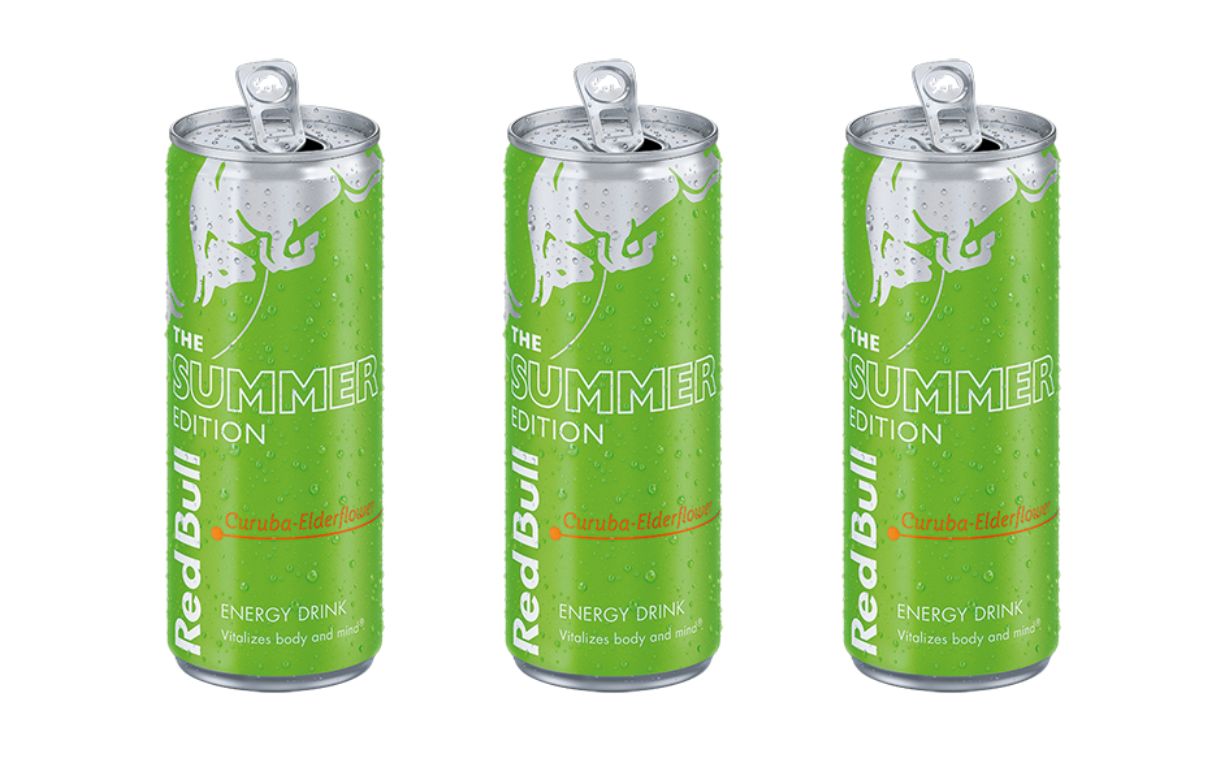
Ever wondered what's really in that can of Red Bull you're sipping to kickstart your day or fuel your late-night study session? Red Bull's nutrition label holds all the secrets, but let's be honest, how many of us actually take the time to read and understand it? From the amount of sugar to the types of vitamins and everything in between, there's a lot more to this popular energy drink than just wings. In this blog post, we're diving headfirst into the nitty-gritty of what makes Red Bull tick. Ready to get the lowdown on those fizzy facts? Buckle up, because we're about to crack open the can on the 15 vital facts about Red Bull's nutrition label that everyone should know. Whether you're a die-hard fan or just curious, these insights might just change the way you view your favorite energy booster.
Key Takeaways:
- Red Bull contains caffeine, taurine, B-vitamins, and sugar, giving a quick energy boost. But too much can lead to health issues like caffeine overdose and sugar-related concerns.
- Drinking Red Bull occasionally is okay, but daily consumption can lead to health risks. It's best to focus on a balanced diet, hydration, exercise, and sleep for sustained energy.
What's Inside a Can of Red Bull?
When you grab a can of Red Bull, you're not just getting a caffeine boost. There's a mix of ingredients designed to energize you. Let's break down what's actually in there.
-
Caffeine is the main ingredient that gives you that immediate jolt. A standard 8.4-ounce (250-milliliter) can contains about 80 mg of caffeine, roughly equivalent to a cup of coffee.
-
Taurine, an amino acid, is another key component. It's naturally found in the body and has been linked to several health benefits, including improved exercise performance.
-
B-Vitamins are plentiful in Red Bull. These include niacin (vitamin B3), pantothenic acid (B5), vitamin B6, and vitamin B12. They play vital roles in energy production and brain function.
-
Sugar content is also significant. A single can has about 27 grams of sugar, which contributes to the energy boost but also to the calorie count.
-
Calories in a can amount to approximately 110, mainly from the sugar and carbohydrates.
How Does Red Bull Affect Your Body?
Drinking Red Bull can have immediate and longer-term effects on your body. Here's what happens after you drink a can.
-
Energy Levels Spike due to the caffeine and sugar, giving you a quick burst of energy and alertness.
-
Increased Heart Rate and Blood Pressure can occur because of the caffeine, which stimulates the heart and nervous system.
-
Improved Physical Performance has been reported by some athletes and regular users, likely due to the combination of caffeine, taurine, and B-vitamins.
-
Potential for a Sugar Crash exists, as the high sugar content can lead to a rapid increase in blood sugar levels followed by a sharp decline, leaving you feeling tired.
Is Red Bull Good for You?
While Red Bull can give you a quick energy boost, it's worth considering the health implications of regular consumption.
-
Moderation is Key. Drinking Red Bull occasionally is unlikely to cause harm, but frequent consumption can lead to negative health effects.
-
Risk of Caffeine Overdose. Consuming multiple cans in a short period can lead to too much caffeine in your system, causing jitters, anxiety, heart palpitations, and in severe cases, more serious health issues.
-
Sugar Content Concerns. The high sugar level can contribute to weight gain and increase the risk of type 2 diabetes and heart disease if consumed excessively.
-
Possible Nutritional Deficiencies. Relying on Red Bull for energy can lead to poor dietary choices, missing out on essential nutrients from whole foods.
Can You Drink Red Bull Every Day?
Understanding the potential impacts of daily consumption can help you make informed decisions about including Red Bull in your diet.
-
Not Recommended for Daily Use. Health experts advise against making Red Bull or any energy drink a daily habit due to the risks associated with high caffeine and sugar intake.
-
Consider Healthier Alternatives. For sustained energy, focus on a balanced diet, adequate hydration, regular exercise, and enough sleep. These lifestyle choices offer more benefits without the risks tied to energy drinks.
A Quick Recap on Red Bull's Nutritional Insights
Red Bull's nutrition label packs a punch, revealing much about what makes this energy drink a popular choice. With caffeine, taurine, B-vitamins, and sugars, it's designed to give you that much-needed boost. But, moderation is key. Too much can lead to health issues like increased heart rate or anxiety. For those watching their intake, sugar-free options are available, offering a way to enjoy the energy without the sugar rush. Always check the label, especially if you've got dietary restrictions or health concerns. Remember, Red Bull can be a part of a balanced lifestyle when consumed wisely. So, next time you reach for that can, you'll know exactly what you're getting into. Stay informed, stay healthy, and let Red Bull give you wings in the right way.
Frequently Asked Questions
Was this page helpful?
Our commitment to delivering trustworthy and engaging content is at the heart of what we do. Each fact on our site is contributed by real users like you, bringing a wealth of diverse insights and information. To ensure the highest standards of accuracy and reliability, our dedicated editors meticulously review each submission. This process guarantees that the facts we share are not only fascinating but also credible. Trust in our commitment to quality and authenticity as you explore and learn with us.


